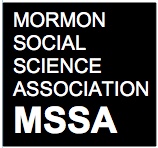Q: I’m about to begin an honors thesis in psychology and am interested in using an LDS sample. I’m not abreast of the literature, and was wondering if there were some interesting findings in the research examining latter-day saints? Perhaps you could point me to a good review? Alternatively and probably more useful, have you as an expert researcher identified any anomalies or gaps in LDS research? Another way of looking at this may be – if you yourself could have a psychological study done examining some aspect of Mormons, what would you be most interested in examining? Any suggestions no matter how vague or fantastic would be really appreciated. Lastly, I have leanings myself towards studying recently returned missionaries on some aspect of adjustment/subsyndromal PTSD. Potentially with a view to proposing a sort of “RM-MTC” for vulnerable rm’s.
I’m wondering how feasible this research proposal sounds, or if anything like this has been done with missionaries in the past, and whether the church needs to approve a study such as this…
A: Here are the answers from the MSSA…
Michael Nielsen offered the following:
There is very little psychological work examining post-mission life, or even mission life, for that matter. I recall a few articles dealing with this topic in general. I’d encourage you to consider framing it as post-mission adjustment, or something similar, rather than PTSD, as PTSD will likely be perceived by some who could benefit from the research as denigrating the mission experience, or as suggesting a prejudice against missions even if it is not intended. This can adversely affect your ability to get a good sample, as well as the potential to publish the results later. If your library has access to the PsycInfo database, you may be able to locate helpful studies by combining “religio*” and “adjustment”, and narrowing down the resulting list. Don’t include LDS or Mormon unless you really need to focus on specifically Mormon elements. You might also try the Sommervogel Archive (http://www.division36.org/sommervogel.html), which is an index of religion research that has little overlap with the PsychInfo database. (For instance, searching Mormon in Sommerogel yields results from religion journals, sunstone, and other things not indexed in PsycInfo.) By maintaining a sufficiently broad conceptual base, not limiting your research to Mormonism specifically, you should be able to find a good body of literature to build on.
Armand Mauss offered the following:
Here are some suggestions, whether or not you are able to do a survey for your honors thesis:
1) Get a copy of the large bibliography, Studies in Mormon History, 1830-1997, compiled by Allen, Walker, and Whittaker (U. of Illinois Press, 2000), and go to the final section, “A Topical Guide to Published Social Science Literature,” where you will find an overview of what sociological and psychological studies have been done (up to about a decade ago). Some of these works were based on surveys but most were not. Nevertheless, you can see what sorts of topics have already been addressed. Some studies of missionaries are included.2) Get a copy of Heaton, Bahr, and Jacobson, A Statistical Profile of Mormons: Health, Wealth, and Social Life (Edwin Mellen Press, 2004). From this book you can see what survey data sets are in the public domain and potentially available for secondary analysis. Most of them require the researcher to cull out Mormon subsamples from the larger data sets. Heaton et al. can probably tell him how to do this, and how to get access to the data sets. They might already be on file at BYU.
3) Go to the ARDA website and see what kinds of data are available on Mormons in that archive. My own 40-year-old surveys are on file there, which could at least give him examples of the kinds of questions that have been successfully used in studying Mormon populations. Other ARDA data sets contain LDS data aggregated at the congregational or county level, etc. See this and this.
4) Finally, it might be in your interest to contact the Research Information Division (RID) in Salt Lake City to see if they have any leads for him. Their own data would be proprietary, but they might be able to point him to studies they know of that would be available to him. I know, for example, that RID participated in the recent Congregational Surveys done by the Hartford Seminary (which I think are included in the ARDA archive), so even RID data collected for those surveys might be available. (If you want contact information for some of the RID researchers, let me know.)
Andrew Miles offered the following:
Glad to hear you are interested in studying Mormons! In my experience, there aren’t that many social scientific studies specifically about Mormons, though that has been changing in recent years. The problem is that most big data sets have very few Latter-day Saints in them, and so researchers on religion usually can’t look at patterns for LDS apart from other religious groups. That means that whatever you do, you’ll probably have to collect your own data.
In terms of gaps in the literature . . . Well, most research that I’m familiar with on Mormons is historical or cultural. That means that most psychological or social psychological questions that might be unique to Mormons probably have not been explored. I think you could expand your RM study to include other stressors as well. For instance, being single in a family-oriented church might be seen as a type of chronic stressor, and being called into a demanding church position such as bishop or stake president might similarly provoke stress. These could lead to psychological distress, but might also be counterbalanced by support and coping resources that exist in the LDS church as well. If you wanted to take a comparative approach, you could look at mental health among LDS and another religious (or non-religious) group.

